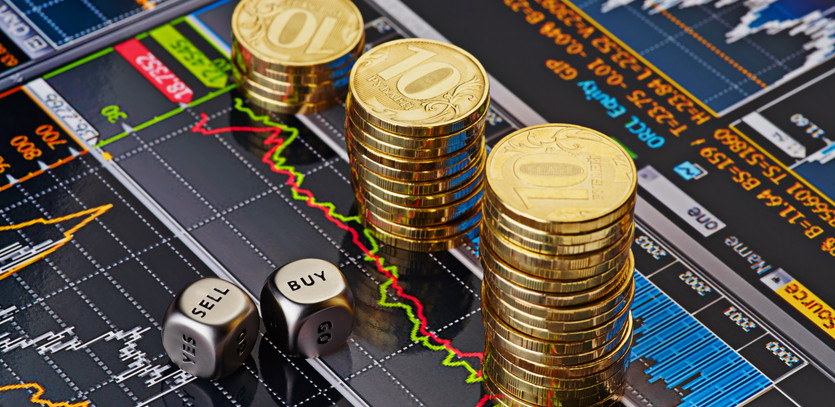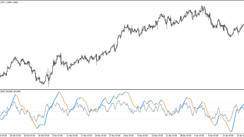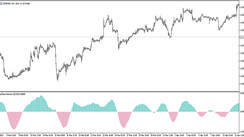The foreign exchange market, often referred to as the forex market, is an intricate, globally decentralized market where traders and speculators engage in currency exchanges. Here's a quick rundown of how this fascinating market functions:
A Market of Immense Proportions: With over $5 trillion traded daily, the forex market surpasses any other financial market in terms of volume. It's a highly liquid and ceaseless market, functioning 24 hours a day, five days a week.
Intermediary Intervention: For traders to participate in the forex market, they need the services of an intermediary, typically a forex broker. These brokers facilitate the execution of trades, enabling traders to buy and sell currencies based on their market forecasts.
Unique Market Dynamics: Unlike many other financial markets, the forex market isn't subject to stringent regulations, which often leads to higher risks. Moreover, it doesn't have a centralized clearing mechanism, adding a layer of counterparty risk to each trade.
Profit and Loss Potential: Traders speculate on currency value fluctuations to make profits. They purchase a currency if they anticipate its value will rise, and conversely, sell it if they predict it will depreciate.
Insights into the Art of Forex Trading
Forex trading is a delicate balance of skill, analysis, and intuition. As a trader, understanding some key aspects of this market can assist you in formulating effective strategies:
-
Global Participation: Forex traders span the globe, exchanging various currencies based on their individual or institutional needs, as well as speculations about future movements of currency values.
-
Enormous Trading Volume: The forex market boasts the largest trading volume in the world when measured by the notional value of the trades. This provides an unparalleled degree of liquidity, making it an attractive market for traders.
-
Role of Brokers: Forex brokers play a critical role in helping traders find counterparties for trades, especially when dealing with less liquid currencies. They are compensated for their services via commissions and spreads.
-
Complex Fee Structure: Understanding how forex brokers earn their revenues can guide traders in making an informed broker choice. Brokers typically earn through commissions per trade, or a spread (the difference between the bid and ask price of a currency), or a combination of both.
Understanding the mechanics of the forex market and gaining key insights into forex trading are fundamental steps in preparing for your journey in this highly volatile, high-reward market.
The Indispensable Role of Forex Brokers in the Foreign Exchange Market
Forex brokers, the pivotal players in the world of foreign exchange, execute a multitude of roles within this complex and dynamic ecosystem. Operating predominantly in the over-the-counter (OTC) market, they form a bridge connecting traders with the global currency markets.
Understanding the critical functions and the mechanics of their operations can provide valuable insights for both novice and experienced traders. Here's a deeper dive into the multi-faceted role of forex brokers:
-
Order Execution: The fundamental duty of a forex broker is to take orders for currency purchases or sales and ensure their successful execution. This operational efficiency guarantees a seamless trading experience for investors.
-
Market Access: Forex brokers provide traders with access to this immense, highly liquid, global marketplace. Whether you are a solo trader working from home or a multinational corporation, brokers are your gateway to forex trading.
-
Pricing and Liquidity: Brokers maintain relationships with numerous large banks and financial institutions, aggregating quotes from these entities to offer their clients the most competitive pricing. By doing so, they ensure liquidity, even in the face of market volatility.
-
Trading Platform Provision: Most forex brokers provide their clients with proprietary trading platforms armed with a suite of tools to assist in analysis, decision-making, and seamless trade execution. These platforms often include real-time price updates, technical analysis tools, economic news feeds, and more.
-
Leverage Provision: Brokers typically offer leverage – a feature that allows traders to control large positions with a comparatively small amount of capital. While this can magnify profits, it also amplifies risks, necessitating careful use.
While brokers provide numerous advantages, it's critical to remember they operate in the less regulated OTC market. This space doesn't have a centralized clearing mechanism, making counterparty risk a significant concern. As a trader, you must exercise caution and perform thorough due diligence to ensure your broker is reliable and financially sound.
Moreover, be aware that forex trading isn't covered by protective regulations applicable to securities transactions. Navigating this market calls for vigilant and educated trading strategies – a journey where your broker serves as both a facilitator and a guide.
Fee Structure of Forex Brokers: Commissions and Spreads
When engaging with forex brokers, it's important to understand how their fee structure works, which forms the foundation of their revenue model. Typically, forex brokers charge their clients in one of two ways, either through a commission on each trade, or a spread, or sometimes a combination of both. Let's delve deeper:
-
Commissions: A forex broker may charge a set fee for each trade, known as a commission. This is generally a fixed amount per lot traded and is independent of the final outcome of the trade. The specific amount can vary significantly from broker to broker.
-
Spreads: A spread is essentially the difference between the bid price (the price you'll get when selling a currency) and the ask price (the price you'll have to pay when buying a currency). This price differential is the broker’s spread and serves as their fee for executing the trade. It's important to note that spreads can take two forms:
-
Fixed Spreads: As the name suggests, these spreads remain constant, regardless of market conditions. They provide predictability, but can often be higher than variable spreads, particularly in a low-volatility market.
-
Variable Spreads: These spreads fluctuate with market conditions. They can be narrower than fixed spreads in calm markets but can widen significantly during periods of high market volatility. It's crucial to keep an eye on such spreads, as major market events like changes in interest rates can affect them.
-
-
Combination of Commissions and Spreads: In some cases, a broker might charge both a commission and a spread on a trade. This is especially true for brokers claiming to offer commission-free trades; they often widen the spread to compensate.
Note: The spread for buying and selling the same currency can differ. For example, the ask price (for buying) is typically higher than the bid price (for selling). It's essential to pay close attention to pricing to ensure you're not overpaying.
It's also worth mentioning that brokers with solid capitalization, having strong ties with multiple large forex dealers to procure competitive quotes, are usually in a position to offer competitive pricing. Understanding these fee structures empowers you to choose a broker that best fits your trading style and financial goals.
Steering Through the Risk Landscape in Forex Trading
Forex trading, while offering significant profit potential, is fraught with substantial risks. Understanding these challenges can help you navigate the tumultuous seas of the foreign exchange market more effectively. Here are the key risks you need to consider:
-
Margin Trading: One of the attractive features of forex trading is the ability to trade on margin. This means you deposit a small amount as a margin requirement, allowing you to control large positions with relatively small capital. But while leverage can amplify profits, it can also magnify losses. For example, in January 2015, when the Swiss National Bank stopped supporting the euro peg, it led to an abrupt appreciation of the Swiss franc against the euro. Traders caught on the wrong side of this trade suffered significant losses, some even failing to meet margin requirements. This resulted in catastrophic losses for certain brokers, pushing some into bankruptcy.
-
Market Volatility: Forex markets are known for their volatility. While this can present lucrative trading opportunities, it can also lead to substantial losses, especially if you're caught unprepared for sudden market shifts.
-
Fat Finger Errors: In an environment as fast-paced as forex trading, errors can lead to considerable losses. A notorious example is the 'fat finger' error, which was blamed for the 6% drop of the British pound in 2016. These errors typically result from mistyping a trade size or price, highlighting the importance of meticulousness in this high-stakes game.
-
Counterparty Risk: Since there's no centralized clearing mechanism in forex trading, the counterparty risk is significant. There's always a risk that the broker or other entity on the other side of your trade may default.
Remember, vigilance, extensive research, and careful strategy planning are vital when engaging in forex trading. It's crucial to stay informed about market developments and adjust your strategies accordingly. Forex trading isn't for the faint-hearted but understanding the risks can increase your chances of success in this challenging market.
Crucial Considerations for Your Forex Trading Journey
Embarking on a forex trading journey demands due diligence and strategic thinking, with the realization that this market comes with significant risks. Its opaque nature, coupled with the high prevalence of scams, adds an extra layer of complexity for traders. Here are some essential points to remember:
-
Beware of Scams: Fraudulent get-rich-quick schemes promising exorbitant returns are a common trap in this market. Always remember, if it sounds too good to be true, it probably is. It's crucial to stay alert and avoid falling prey to such scams.
-
Lack of Price Transparency: The forex market is notorious for its lack of price transparency. Each broker employs their unique quoting method, adding an additional layer of complexity for traders in evaluating trade costs.
-
Choosing the Right Broker: The broker you choose can make a significant difference in your trading experience and profitability. Carefully consider the broker's fee structure, their reliability, financial strength, and the quality of their services before making a decision.
-
Stay Informed and Be Prepared: Keeping an eye on global economic news and understanding how different factors can influence the currency market is key to successful trading. Stay informed and be prepared to adjust your strategies based on market movements.
Trading in the forex market is not a journey to be taken lightly. Your success hinges on your ability to understand the market dynamics, select a reliable broker, and navigate through the challenges presented by this complex market. While the road may seem arduous, with proper knowledge and strategy, it can become a path paved with potential profits.





